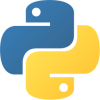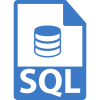Learn Advance Your Future.
Find the best courses, videos, books, podcasts, and blogs to learn a new skill
Trending Skills
Type
Skill level
Cost
Accounting for Decision Making (Coursera)
Through this course, you will start by addressing the two �big questions� of accounting: �What do I have?� and �How did I do over time?� You will see how the two key financial statements _ the balance sheet and the income statement - are designed to answer these questions and then move on to consider how individual transactions aggregate to make up these financial statements.
Accounting Analytics (Coursera)
Accounting Analytics explores how financial statement data and non-financial metrics can be linked to financial performance. In this course, taught by Wharton's acclaimed accounting professors, you'll learn how data is used to assess what drives financial performance and to forecast future financial scenarios.
Managerial Accounting: Cost Behaviors, Systems, and Analysis (Coursera)
In this course, you will learn how to use accounting to facilitate and align decisions made by owners, managers, and employees. You will learn how accountants create, organize, interpret, and communicate information that improves internal processes, and allows organizations to identify and leverage opportunities to create value within the supply chain and with customers.
Accounting Analysis I: The Role of Accounting as an Information System (Coursera)
This course is the first course in a five-course Financial Reporting Specialization that covers the collection, processing, and communication of accounting information (via financial reports) about economic entities to interested parties (i.e., managers and external stakeholders such as stockholders and creditors).
Accounting Analysis I: Measurement and Disclosure of Assets (Coursera)
This course is the second course in a five-course Financial Reporting Specialization that covers the collection, processing, and communication of accounting information (via financial reports) about economic entities to interested parties (i.e., managers and external stakeholders such as stockholders and creditors).
Brand and Product Management (Coursera)
Identify the critical information needed to develop a product and brand strategy that generates both quick-wins and long-term value. By completing this course, you will be in position to create an activity plan to bring your brand strategy to life - both externally towards consumers and internally to employees.
Accounting for Business Decision Making: Measurement and Operational Decisions (Coursera)
This course provides an introduction to accounting's measurement role inside of an organization and how accountants communicate information that helps managers and employees make operational decisions. In particular, you will learn how cost information is created and organized to help managers and employees conduct profitability analyses, develop and choose products, make pricing decisions, and make common business decisions.
Accounting for Business Decision Making: Strategy Assessment and Control (Coursera)
This course provides an introduction to accounting's role in helping managers develop and implement, and improve the organization's strategy. In particular, you will learn how non-financial and financial information is created, organized, and communicated to help managers make strategic decisions, as well as measure strategic success.
Introduction to Data Analysis Using Excel by Rice University (Coursera)
Introduction to Data Analysis Using Excel - This is an introductory course in the use of Excel and is designed to give you a working knowledge of Excel with the aim of getting to use it for more advance topics in Business Statistics later. The course is designed keeping in mind two kinds of learners - those who have very little functional knowledge of Excel and those who use Excel regularly but at a peripheral level and wish to enhance their skills.
Excel Skills for Business: Essentials (Coursera)
In this first course of the specialization Excel Skills for Business, you will learn the essentials of Microsoft Excel. Within six weeks, you will be able to expertly navigate the Excel user interface, perform basic calculations with formulas and functions, professionally format spreadsheets, and create visualizations of data through charts and graphs.
Accounting: Principles of Financial Accounting (Coursera)
This course will provide you with the accounting language's essentials. Upon completion, you should be able to read and interpret financial statements for business diagnosis and decision-making. More importantly, you will possess the conceptual base to keep learning more sophisticated accounting and finance on your own.
Financial Engineering and Risk Management (Coursera)
This specialization is intended for aspiring learners and professionals seeking to hone their skills in the quantitative finance area. Through a series of 5 courses, we will cover derivative pricing, asset allocation, portfolio optimization as well as other applications of financial engineering such as real options, commodity and energy derivatives and algorithmic trading. Those financial engineering topics will prepare you well for resolving related problems, both in the academic and industrial worlds.
Formal Financial Accounting (Coursera)
This course builds upon what you learned in Financial Accounting: Foundations and Financial Accounting: Advanced Topics and introduces you to formal foundations of financial accounting. The main purpose of the course is to familiarize you with technical terms in financial accounting, such as debit, credit and T-account.
Python & Statistics for Financial Analysis by Hong Kong University (Coursera)
Python is now becoming the number 1 programming language for data science. Due to python's simplicity and high readability, it is gaining its importance in the financial industry. The course combines both python coding and statistical concepts and applies into analyzing financial data, such as stock data.






